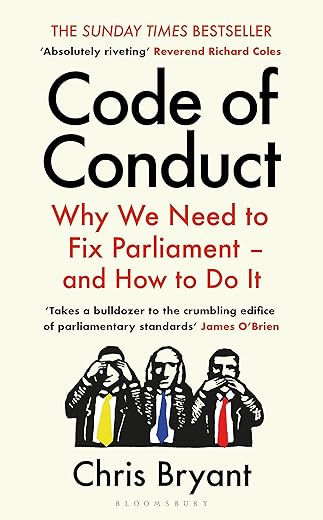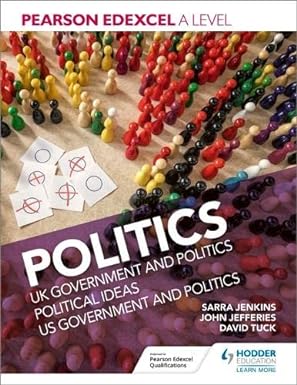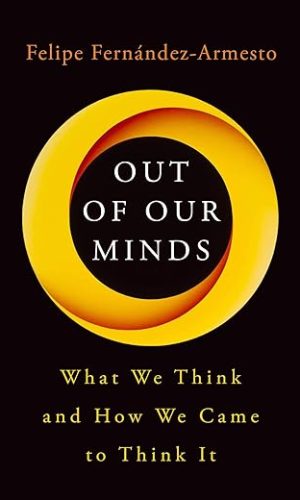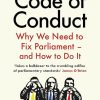Code of Conduct: Why We Need to Fix Parliament – and How to Do It
£7.13
Cronyism, nepotism, conflicts of interest, misconduct, lying. Is this the worst parliament in history?
Leading MP Chris Bryant tells the inside story of misconduct in parliament, and outlines how we can help solve it.
‘Takes a bulldozer to the crumbling edifice of parliamentary standards’ JAMES O’BRIEN
‘Absolutely riveting. I read, I blink, I gasp’ REVEREND RICHARD COLES
‘Vital. It should serve as a wake-up call to all of us’ ALASTAIR CAMPBELL
‘A lively, forensic, engrossing, sometimes entertaining, often disturbing and always unflinching interrogation of what’s gone wrong with our legislature’ ANDREW RAWNSLEY, OBSERVER
The extraordinary turmoil we have seen in British politics in the last few years has set records. We have had the fastest turnover of ministers in our history and more MPs suspended from the House than ever. Rules have been flouted repeatedly, sometimes in plain sight. The government seems unable to escape the brush of sleaze. And just when we think it’s all going to calm down a bit, another scandal breaks.
Having spent years as Chair of the Committees on Standards and Privileges, Chris Bryant has had a front-row seat for the battle over standards in parliament. Cronyism, nepotism, conflicts of interest, misconduct and lying: politicians are engaging in these activities more frequently and more publicly than ever before. The result? The work of honest and accountable MPs is tarnished. Public trust is worn thin. And when nearly two thirds of voters think that MPs are out for themselves, democracy is in trouble.
It is time for a better brand of politics. Taking us inside the Pugin-carpeted corridors of Westminster, from the prime minister’s office to the Strangers’ Bar, Code of Conduct examines how parliament has got into this mess and suggests how it might – at last – get its house in order.
Read more
Additional information
| Publisher | Bloomsbury Publishing, 1st edition (17 Aug. 2023) |
|---|---|
| Language | English |
| File size | 858 KB |
| Text-to-Speech | Enabled |
| Screen Reader | Supported |
| Enhanced typesetting | Enabled |
| X-Ray | Not Enabled |
| Word Wise | Enabled |
| Sticky notes | On Kindle Scribe |
| Print length | 240 pages |










by J. P
Interested review of the last few years and a look behind the scenes of Westminster – good to see that after 20 years some MPs are still supporting change in this workplace- just taking too long
by Mr. M. Cooper
The book turned up on time and in sound condition. I ordered this book as I’m interested in politics and thought it would be interesting to get an MPs persepctive on improvement of the institutions. I have no major political affiliations, but having seen some interesting decsions being made over the last few years that break convention and trust, I thought it would be insightful. I haven’t finished the book (about half way through). I am enjoying the book, but have some niggles with the presentation of the information. The author has a habbit of drawing out his points with unnecessary text and populist references. I understand that he is trying to provide context and make it as relatable as possible, but it feels a little repetitive and out of place. The author also labours the point that this is a non partisan book. There are examples of deeds provided to support the need to fix parliament that covers decsions and deeds of MPs from all parties affiliations. However there are more examples from the current govt (which is to be expected as they are in govt), but the language does come across as partisan rather the an objective outline of the issues, root causes and fix. I can read around it, but I felt it loses the objectivity of the material and undermined the seriousness of the points being made. I’m pleased I purchased the book as it is interesting material despite my niggles.
by Martin Rose
There are a small number of MP’s that I admire, Kerry McCarthy (my own local MP), Jess Phillips, Sir Christopher Bryant. This is not exhaustive but I don’t want my review to be just a list of names).
Sir Christopher Bryant has made some incredible arguments, many of which I agree with, but not all. It is healthy for us to have a respectful debate, unfortunately, this is often lacking in the HoC. I watch with admiration how the committee’s work together – cross party and often wish that the respect the members afford each other there could be duplicated into the chamber. PMQ’s is such a waste of time, political point scoring. Why is there never an answer to a question?
This is a brilliant read, written by an incredible man. I thoroughly recommend it to you and maybe certain politicians may benefit from reading it too!
by Mr E A Henderson
Real eye opener and confirms our political system is broken. Factual and didn’t feel it was biased despite being written by a Labour MP.
by David Allen
I was keen to read this book because I too have a passion for Parliamentary reform and my new book ‘The Living Vote’ to be published on September 29th addresses fundamental political change, but from a perspective which is outside of the Parliamentary estate. I was naturally interested in a book which seemed as if it would address the failings of our democracy, but from within Parliament, by an MP of 22 years parliamentary experience. Would it complement my work, would it add anything, would it be revealing and productive? Well, I’ve read it now and here’s my conclusions.
I’ll begin by giving an overview of the book, my general feeling about it and those things that stood out for me. I’ll then explain why.
Firstly, I appreciate the effort that Chris has put into writing this book and his clear concerns about a dysfunctional and declining (in all ways) parliament, but I have to say that it’s a bit disappointing.
I gained the distinct impression that Chris likes rules, lots of them, and in there, slightly camouflaged is a Ministry of Truth, which in Chris’s opinion means no opposition to ‘the climate change mantra’ or dodgy vaccines (a ‘conspiracy theory’ fast becoming true) or any other sacred cow that is eventually proven to be a dud, will be brooked, reminiscent of the extraordinary pronouncement of New Zealand’s former PM, ‘we are the truth’. There are a lot of other rules he likes, all dealing with symptoms of the fundamental problem which Chris is aware of. At least I think he is because he trips over it, Freddie Frinton style, several times, yet none of his proposed solutions bothers with it, they are all focussed on fixing the consequences of excess power and not the mechanisms that create it. In his own words:
‘But I contend that there is something far more significant we need to address next – the extraordinary stranglehold on power that our system gives the Prime Minister and their government from the moment they arrive in Downing Street.’
‘He (to my mind, rightly) wanted to shift power from the executive to the legislature.’
And there’s more of the same, however, he never gets around to it.
I believe he is sincere in attempting to write the book from a non-partisan political standpoint, though for a Labour MP with a Labour Government, for 9 years and a Tory one for 13 years, about 80 per cent of examples seem, fortunately, to be duplicitous Tories, with a smattering of Labour scurrility so that it isn’t too one sided. In part that may be because things have become worse, or because it’s just easier to see the failings of your political opponents than one’s own. Additionally, ministerial opportunities may be on the horizon, we don’t want to be slagging off Starmer now, do we?
Chris also includes himself occasionally but in such a way as to somehow elevate a mysterious ethereal principle above the damning deed or action, in the manner of:
‘We MPs are all flawed. Our motives are not always pure. We can be vain, narcissistic, arrogant and proud.’ (but not me, really.).
Apart from the rare sideswipe at those he dislikes, it’s an honest account broadly, just missing the point. You won’t learn anything new by reading it (apart from Brown and Blair appointing the wrong people to ministerial posts and being too arrogant to put it right), because everything is or has been in the public domain. The criticisms, failings and downright duplicity and lying are all rightly called out, but we already know that, because it is the reason why people have such a low opinion of parliament and MPs in general, but it looks as if the solution to the fundamental problems was just too far out of reach for Chris to even contemplate.
Add a little padding here and there, you know, just something to add a few pages but of no interest to anyone, and we have a fairly low-grade book that is neither informative, nor revealing and fails to address the author’s own assessment of the biggest problem. One must wonder if he’s even read it, for surely, by being so positive about what’s wrong, why would you just leave it there and repeatedly trip over it or avoid it (again Freddie Frinton style).
He has some odd ideas to which the description half-baked suggest far too much cooking, and several I would personally disagree with, but these are political arguments for another day.
The problem with a cascading waterfall of additional rules and peripheral changes is that none of them can be properly thought through. His idea, for example, of a partially elected House of Lords, or an overly complicated set of rules to determine what second jobs are allowed and what wouldn’t be, need more than a paragraph and much more thought than could be and has been given here.
In my view, if one wants change, then begin with the causes of the problems and address those. It may need a book per issue, but what one would be left with would be something tangible, implementable and worthy of discussion. ‘Code of Conduct’ does none of this. It’s a litany of already published, he did this, she did that, and isn’t it awful? Consequently, we should have a rule here and another one there, etc. Ad infinitum.
There is also nothing about how Chris’s measures would be implemented, because for all the discussion and votes in the world, a dictatorial government gets its way regardless. Does he think that Prime Ministers (including Labour’s) would voluntarily relinquish power? It makes sense to update things and some of the suggestions would be helpful, but such changes would be more effective were the distribution of power in the chamber to not be so focussed.
Final verdict, give it a miss.
I declared my interest at the beginning because I too would like to see change and ‘The Living Vote’ does address the ‘extraordinary stranglehold on power’ and ‘shifting power from the Executive to the legislature’ which is precisely what Chris Bryant wants. He recognises the problem, but my book fixes it. Additionally, that shift of power also moves quite some way towards the people as well.
by Malcolm Lisle
Britain is no longer a true democracy but a follow my leader kind of politics. This is worrying as we don’t have the quality of leaders we had in the past. These proposals would make parliament more democratic.
by Frank
Chris has written an interesting book and his wish to do the right thing and represent his constituents shines through. But I personally would have like more meat on the bone regarding the workings of the place and the shannanikings that goes on. He mentions that the number of MPs in relation to population makes the UK over represented but he doesn’t elaborate on it nor does he view whether democracy is working in the UK. He touches on some of the personalities who seem to have lost touch with their constituents but goes no further as to how this could change. I would have liked him to take a more strategic look at the inneficientcy of the place. I think he could have challenged how the whips work a bit more and elaborate on his views that this practice represents true democracy (whatever view people believe that is}. I will continue my search to find a politician who has a handle on how the whole place needs radical reform rather than a sticking plaster approach. Overall I loved the book but from my personal perspective I would have liked a more radical approach to his ideas around strategically changing the whole place and one that truly relies on providing us with a democratic representation.